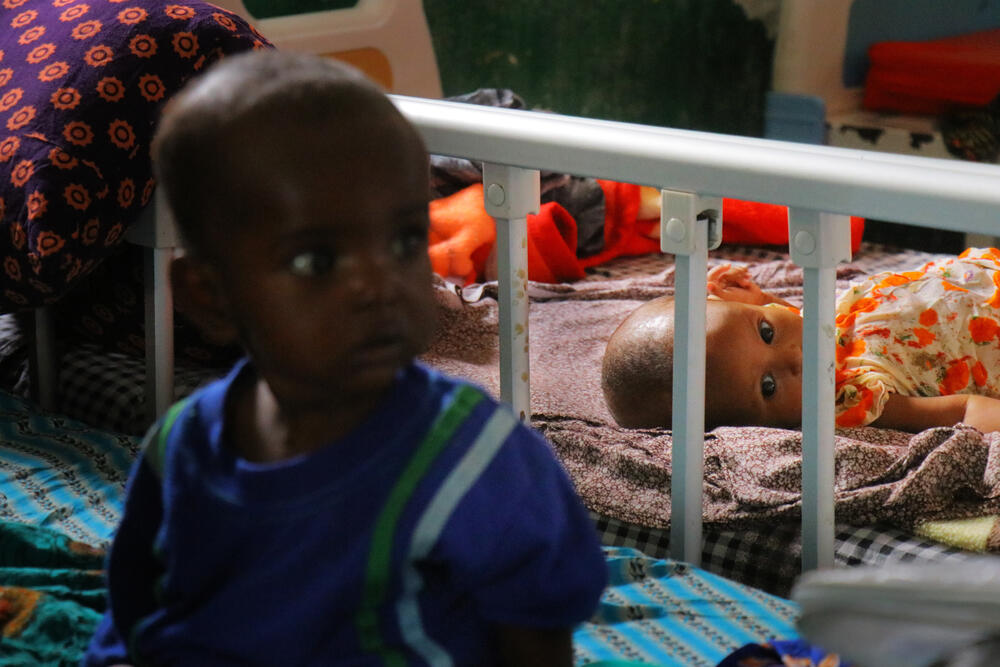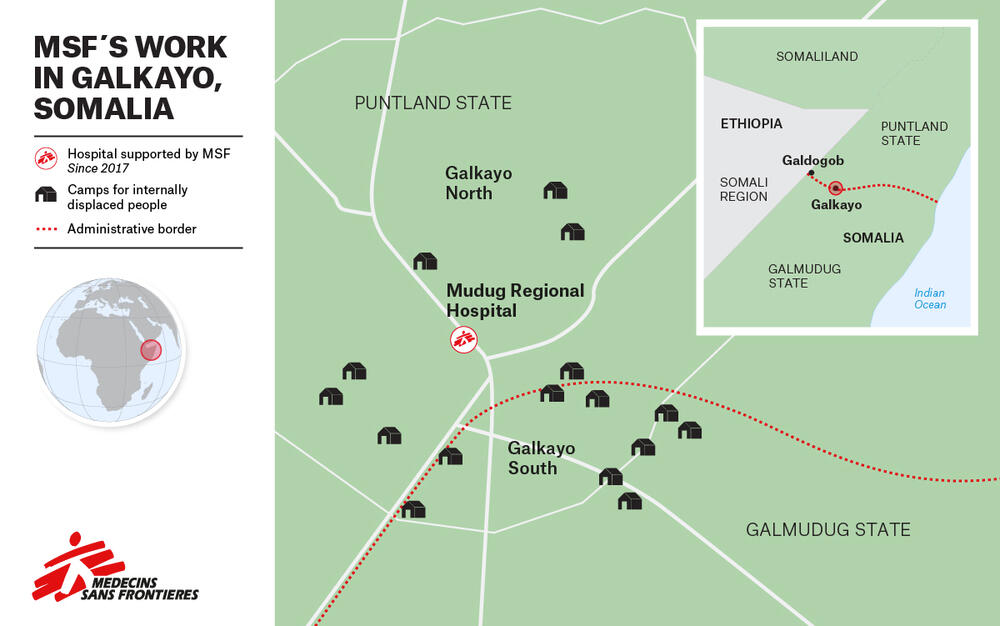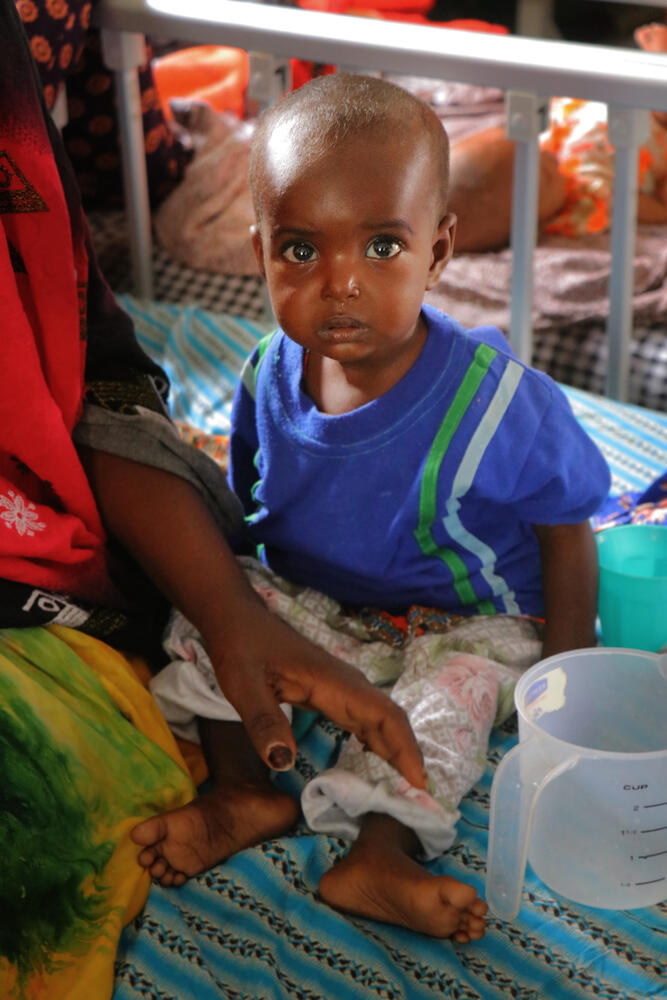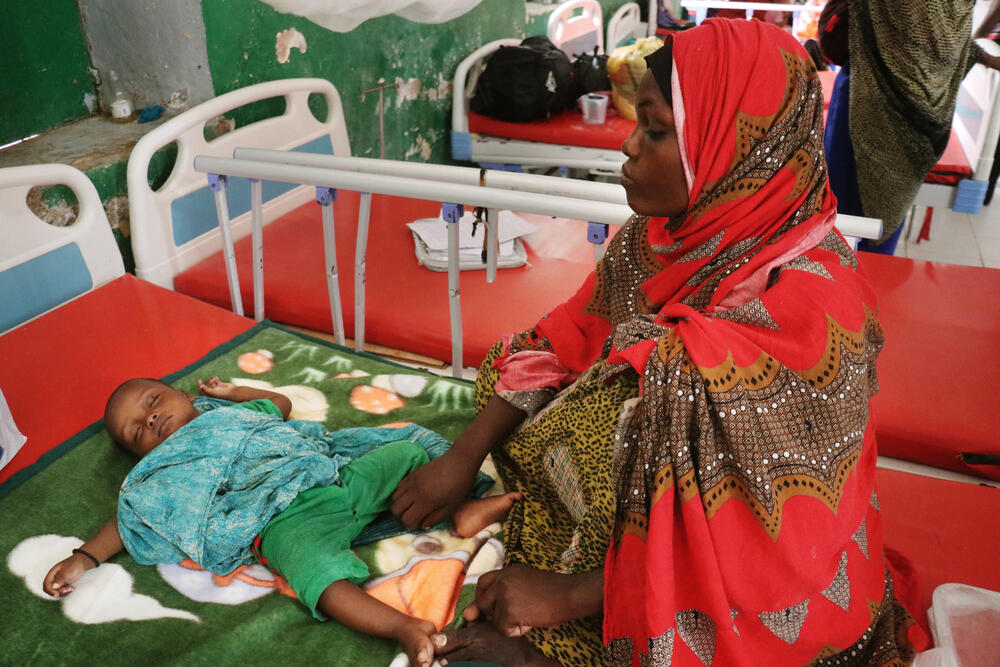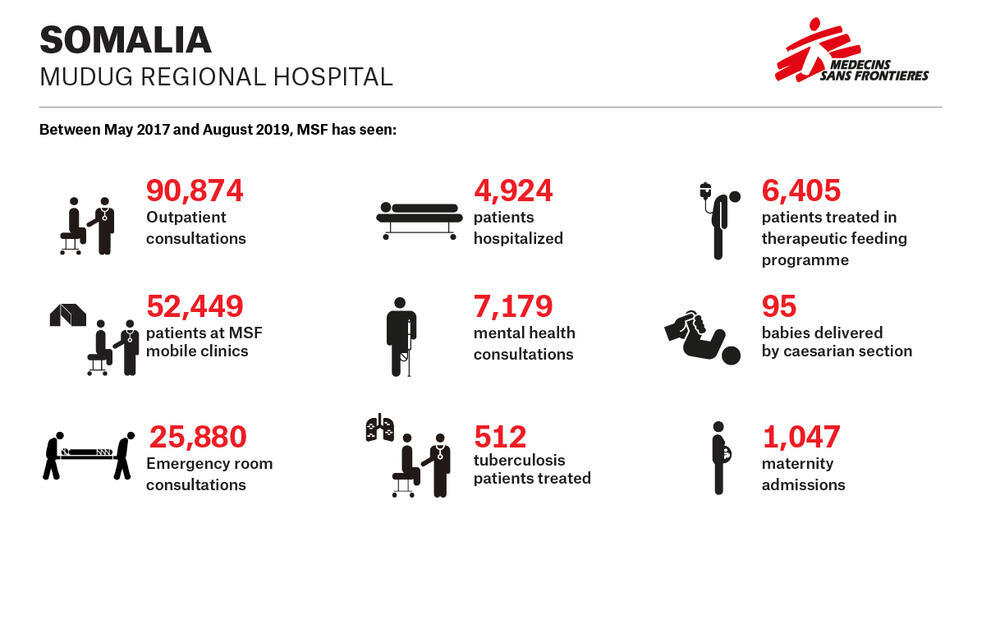Five ways MSF is helping people in central Somalia
In Galkayo, the capital of the north-central Mudug region, more than 100,000 internally displaced people fleeing violence, drought and other climate hazards live in camps scattered across the city.
Some have been displaced for years.
Since May 2017, MSF has been supporting Mudug Regional Hospital, which serves some half a million people and provides free healthcare to displaced people, refugees and local communities.
Together with hospital staff, the MSF team is saving lives. Here's how.
1 | Mobile clinics
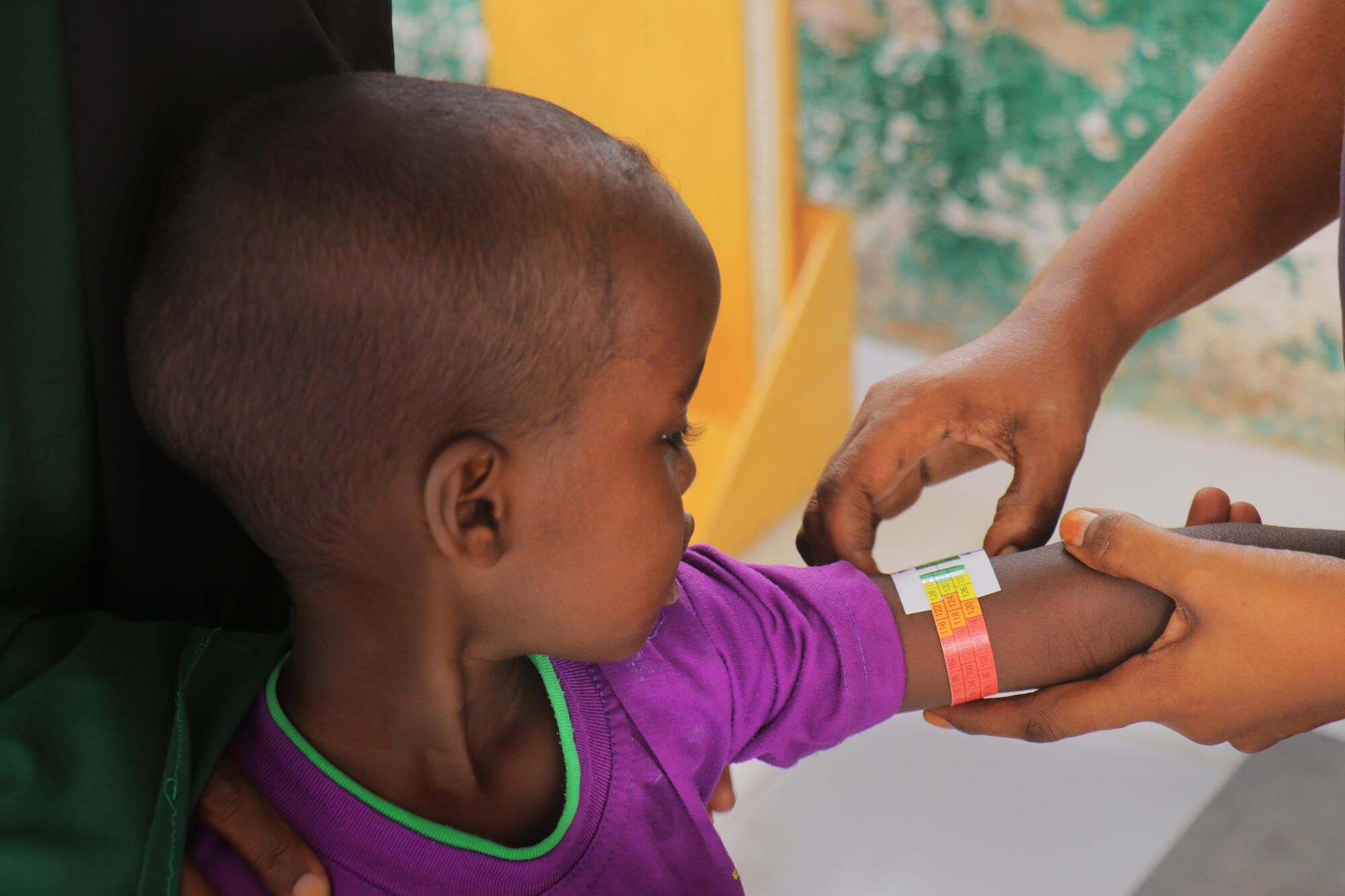
“Galkayo now has more than 70 camps for displaced people, with more people arriving every week from conflict and drought-crippled regions of the country,” says Bashir Muse Hassan.
Bashir is MSF’s deputy medical activity manager at Mudug Regional Hospital, which also runs mobile clinics.
“Our mobile health teams visit 23 of the camps almost every day, providing free basic healthcare and referring patients with critical health needs to the hospital," he says.
“The displaced people do not have enough water or food so there are large numbers of malnourished children.”
57,400
EMERGENCY ROOM ADMISSIONS IN SOMALIA IN 2024
6,990
MENTAL HEALTH CONSULATIONS BY MSF IN SOMALIA IN 2024
270
SURGICAL INTERVENTIONS BY MSF IN SOMALIA IN 2024
2 | Emergency medicine
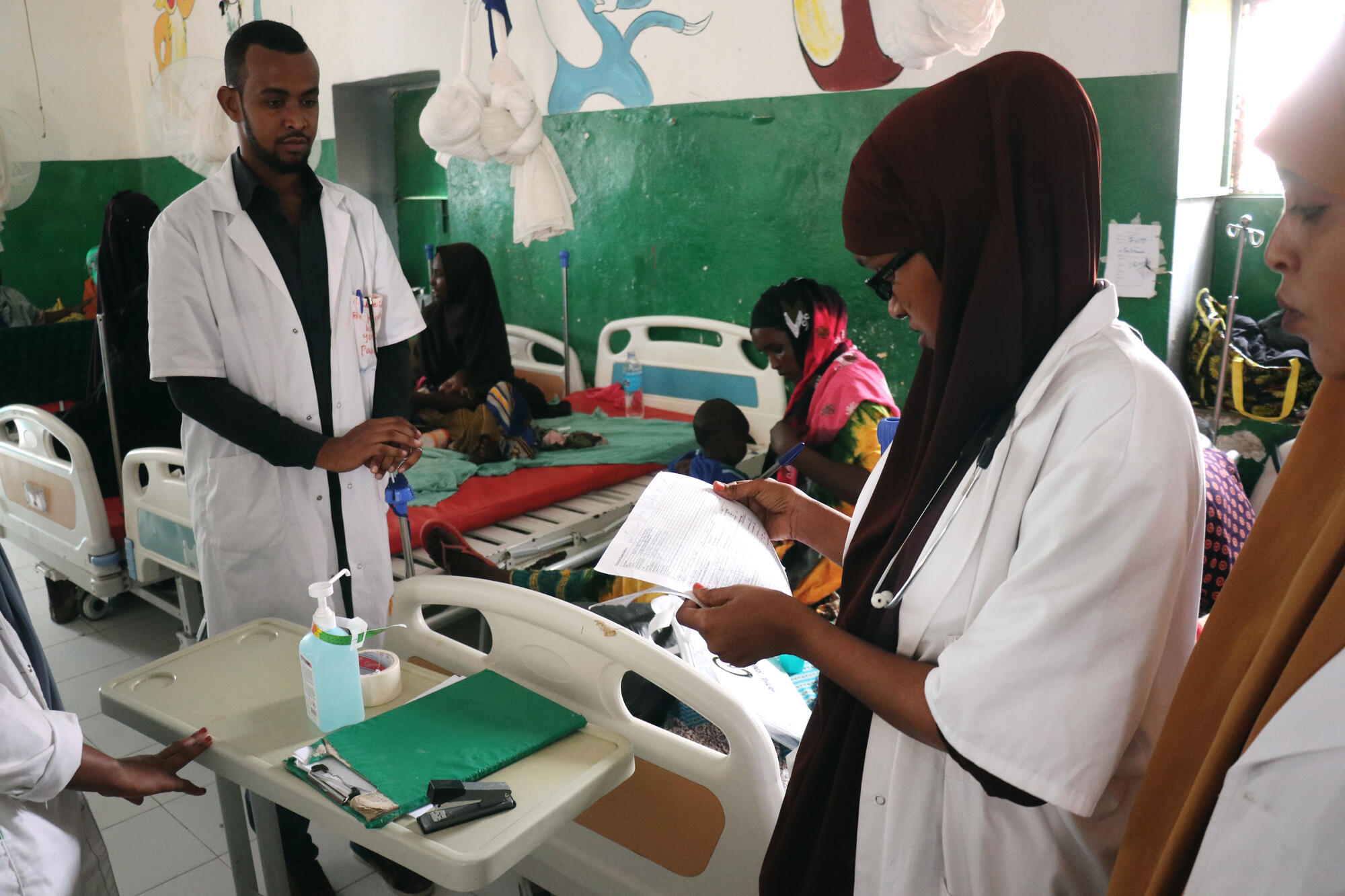
“My daughter Farhiya was very weak and wasn’t responding – it was like she’d fainted,” says Khadro Ahmed Abdi, 28.
“When we arrived at the hospital at about 3pm I was extremely worried. The nurses took her to the emergency room straight away.”
When Khadro's 11-month-old daughter fell sick, her neighbours advised her to go to Mudug Regional Hospital, a five-hour journey from their village of Jira’le, in the Somali region of Ethiopia, leaving her eight older children in the care of her husband.
Khadro’s family are traditional herders and live in a drought-stricken area, surviving on a single meal a day.
She is one of many Ethiopians who travel vast distances to access better healthcare in Somalia.
Severely malnourished, Farhiya was unconscious by the time she arrived in Galkayo.
The nurses wasted no time in admitting her to the hospital’s inpatient therapeutic feeding centre.
“After receiving proper medical care and nutritious milk and biscuits (Plumpy’Nut, a high calorie peanut-based paste), my daughter got better and two days later we were able to return home,” says Khadro.
Without medical care, she says, many children like her daughter would simply not survive.
3 | Malnutrition
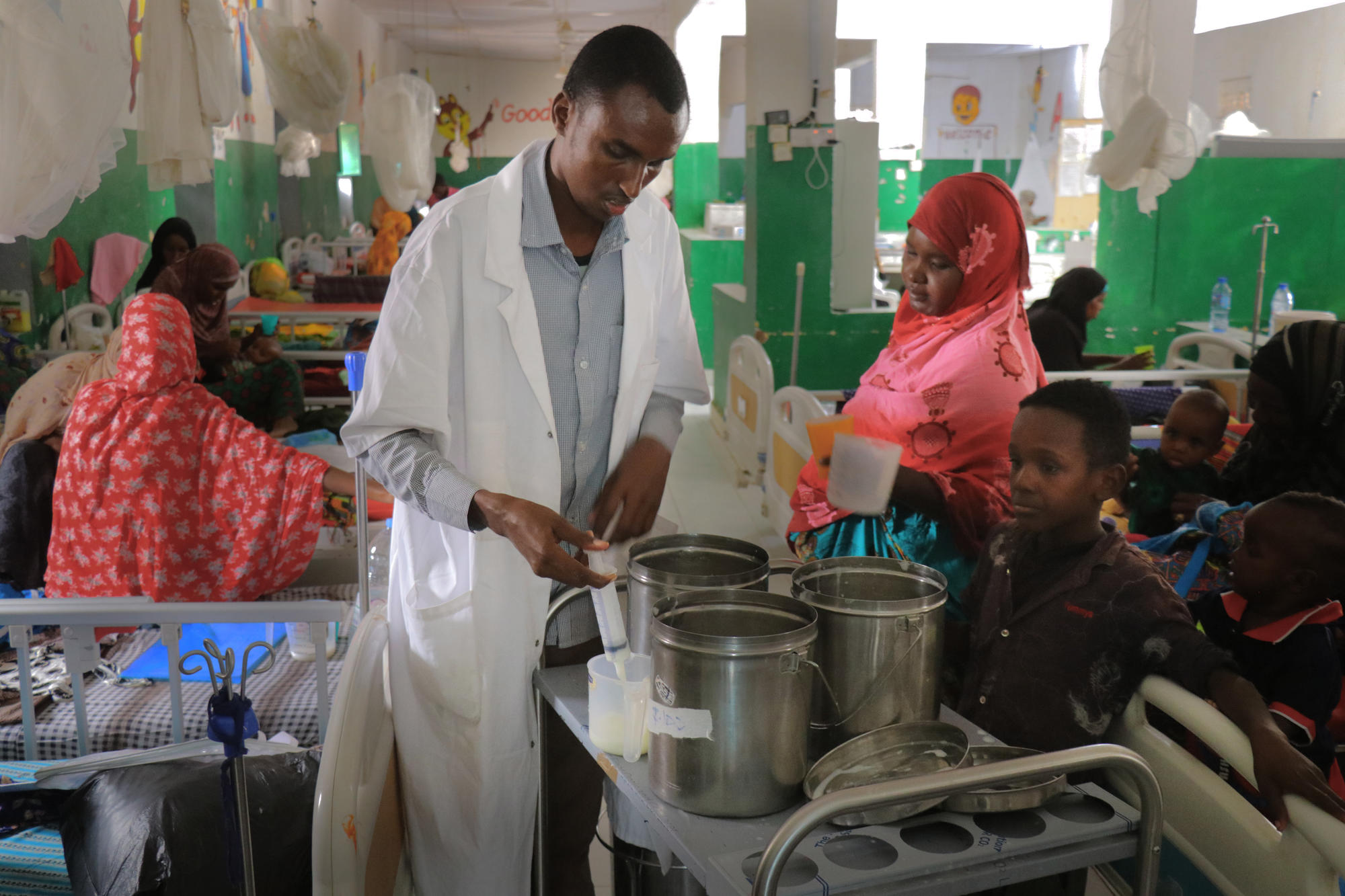
Eight-month-old Bilal lies next to his mother on a bed in the hospital’s paediatric ward.
Brought to the hospital by MSF’s mobile medical team from his home in Bulo Ba’ley camp for displaced people, Bilal is recovering from acute watery diarrhoea.
“Bilal had diarrhoea for three days and was severely dehydrated,” says his mother Kawsar Ibrahim, 25, whose three older children are at home with her husband, a casual labourer.
High rates of malnutrition in children are common across Somalia, especially among displaced families forced from their homes by violence and drought, who often settle in poor urban areas.
Between January and August, MSF treated nearly 2,000 malnourished children at Mudug Regional Hospital.
According to Unicef, an estimated 903,000 children under five in Somalia are acutely malnourished, while 138,000 suffer from severe malnutrition.
The poor rainy seasons of recent years, exacerbated by poverty and harsh living conditions, have contributed to a rise in malnutrition, of which diarrhoea is a leading cause.
Back in Galkayo, Bilal is ready to return home, five days after being admitted for treatment.
“He was put on medication immediately after we arrived,” says Kawsar. "The diarrhoea has now stopped and my son is doing well.
“I am so glad Bilal is well and will be able to play at home again soon.”
4 | Complicated pregnancies
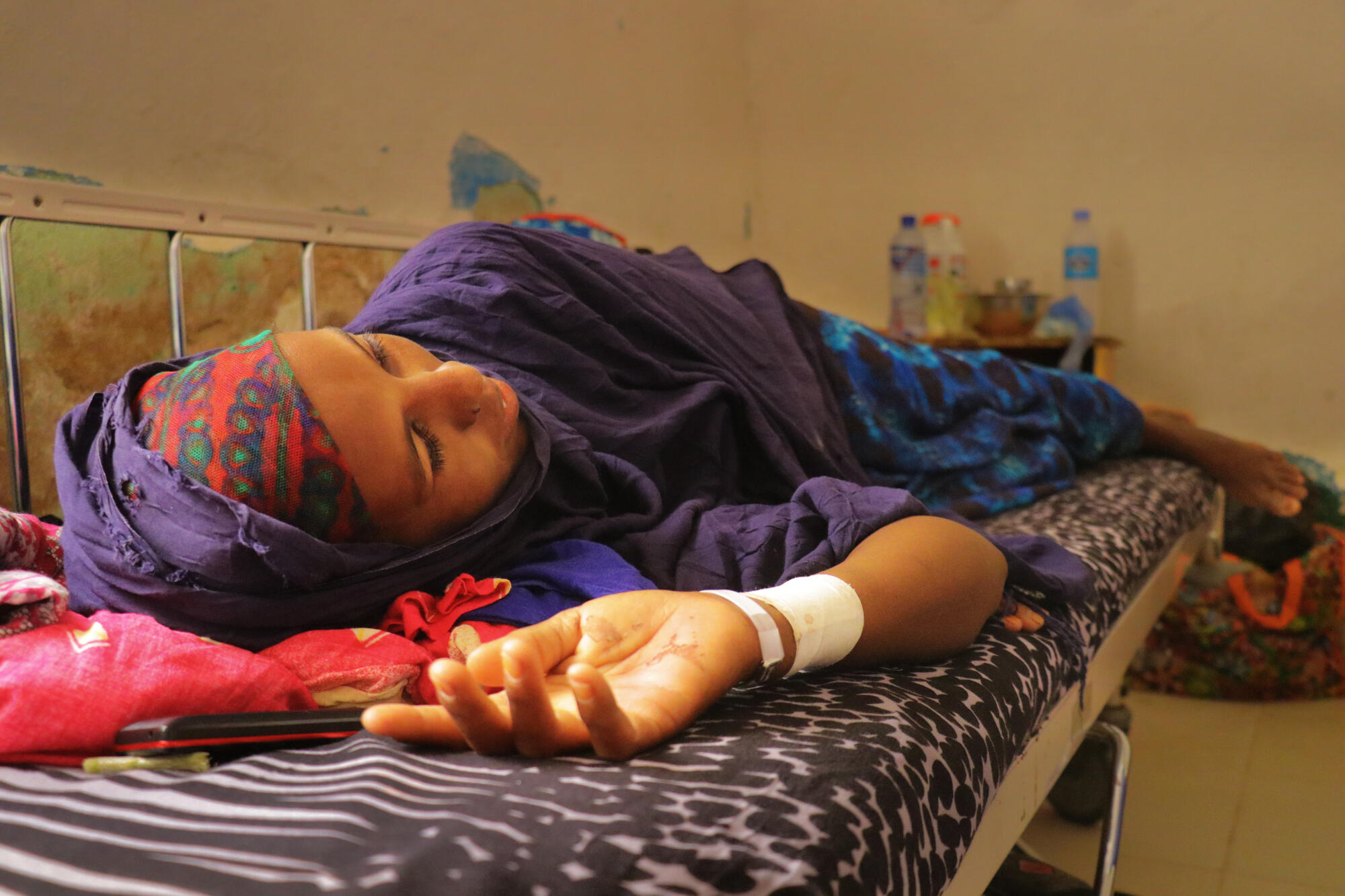
Children are not the only vulnerable group in Galkayo.
For medical staff, as well as for families of pregnant women, managing complications during pregnancy and childbirth is a massive challenge.
Deqa Awil Hassan, a 32-year-old mother of seven, recently gave birth by caesarean with the agreement of her family after being told she would not be able to deliver normally.
“I was in my 25th week of pregnancy when my uterus started to bleed,” recalls Deqa, who comes from Bokh district, in the Somali region of Ethiopia.
“This was my seventh pregnancy and I was a bit scared.
“Fortunately, I delivered a healthy baby boy... I want to name him ‘Abdi Nasib’ (which translates as ‘servant of the fate’) because he was lucky to be born alive.”
In June, the MSF team at Mudug Regional Hospital received more than 170 women experiencing complications in labour, in addition to 19 others who needed an emergency caesarean.
“From that number, you can estimate how vital these services are for the local community,” says Bashir.
5 | Tuberculosis
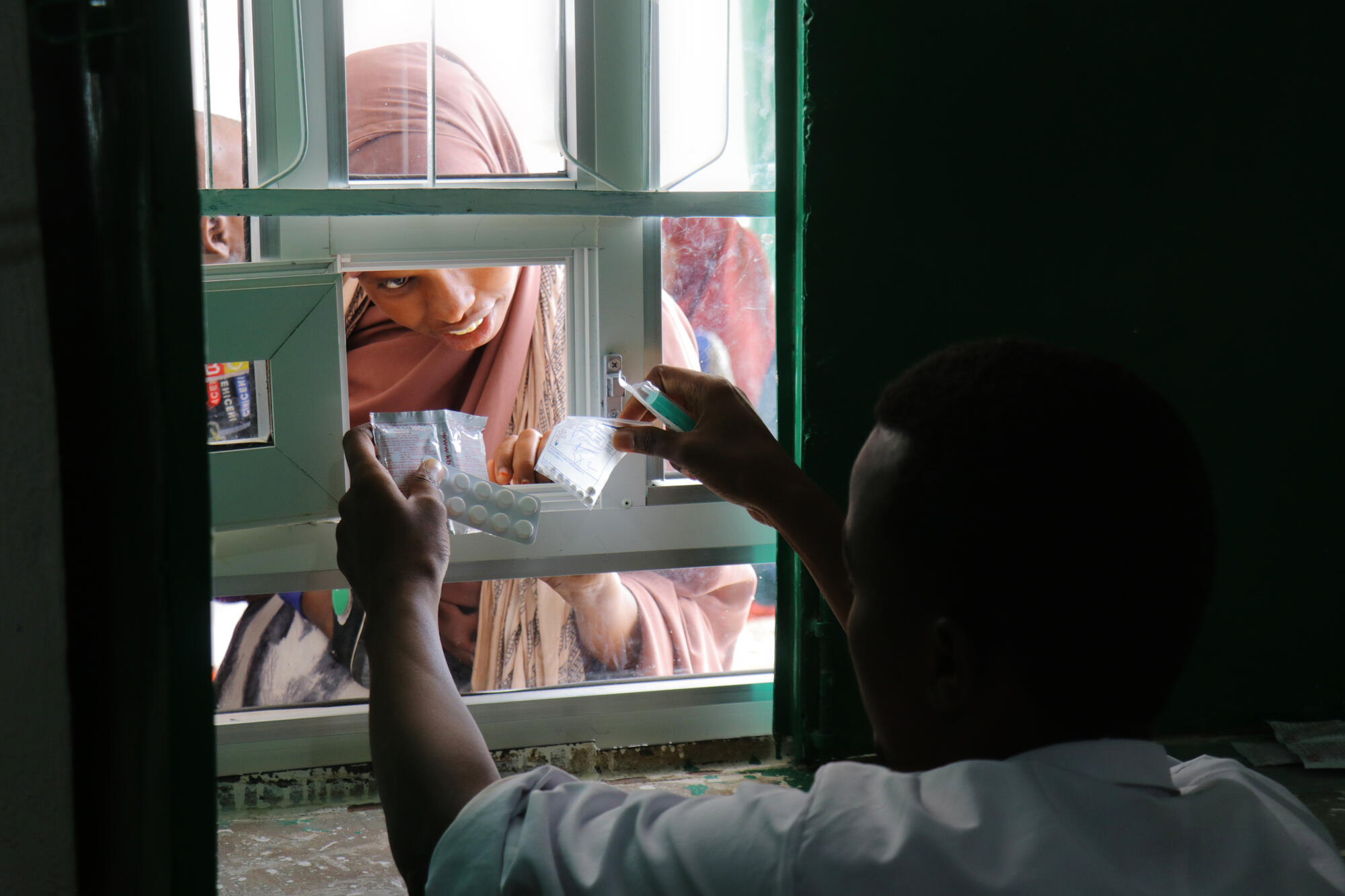
MSF teams in Mudug hospital are also working to reduce the burden of tuberculosis (TB), a disease that spreads easily in overcrowded living conditions, such as in the camps for displaced people in Galkayo.
In Somalia, the diagnosis and treatment of TB is often unavailable or is prone to interruption, which can cause drug resistance.
Fardowsa Hussein Hassan, 40, from north Galkayo, has pulmonary TB, an active infection of the lungs that can be deadly.
She successfully completed her treatment in June but returns to the hospital for regular check-ups.
“I was very weak and sick when I was brought to the hospital in January,” says Fardowsa.
“I was coughing for weeks and when doctors took my sputum to the laboratory, I tested positive for TB. I was immediately put on medication.
“Six months later, I have now tested negative. I thank the hospital management and all those who support the TB department.”
MSF in Somalia
Somalia is Africa’s easternmost country, situated on the Horn of Africa.
Médecins Sans Frontières/Doctors Without Borders (MSF) returned to Somalia in May 2017, four years after a series of violent attacks on our staff forced us to withdraw.
Since then, we have steadily increased support to health facilities in different areas around the country, with an initial focus on malnutrition and paediatric care.
Our aim in Somalia is to ensure that people have access to medical care in areas where needs are critical and the security conditions allow us to operate.
